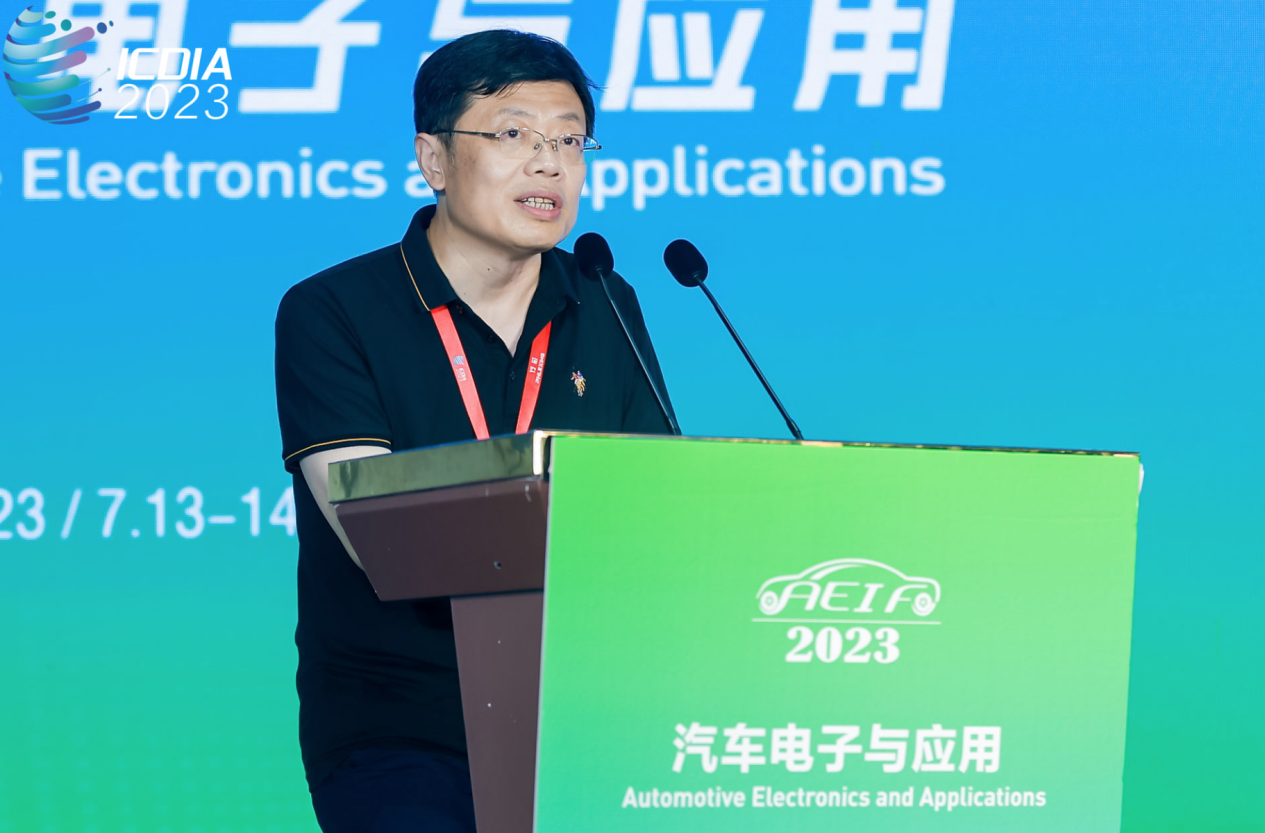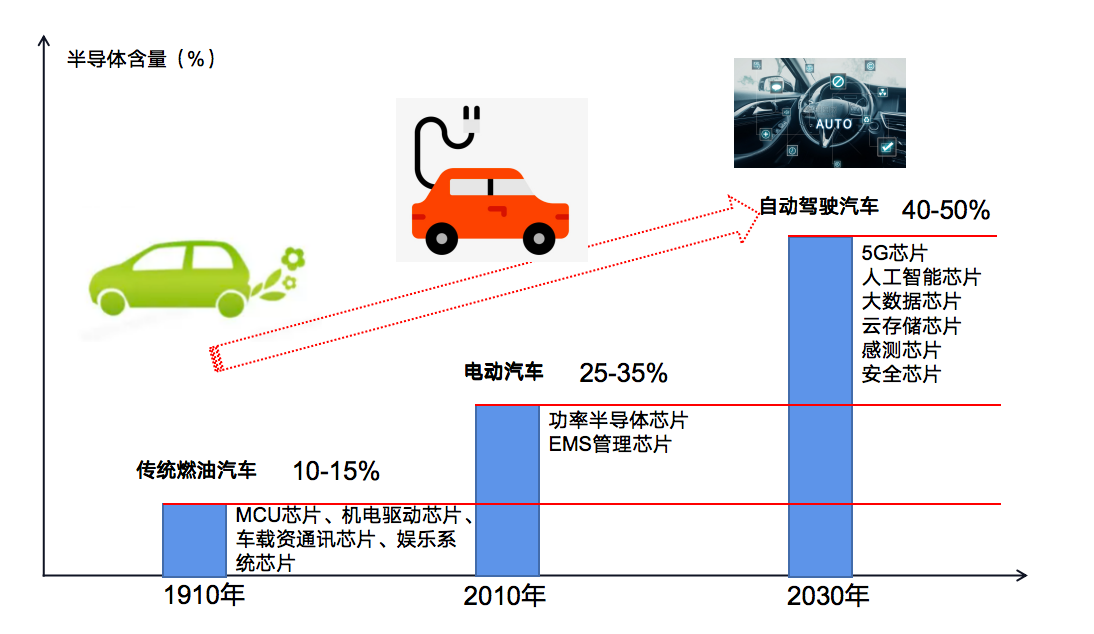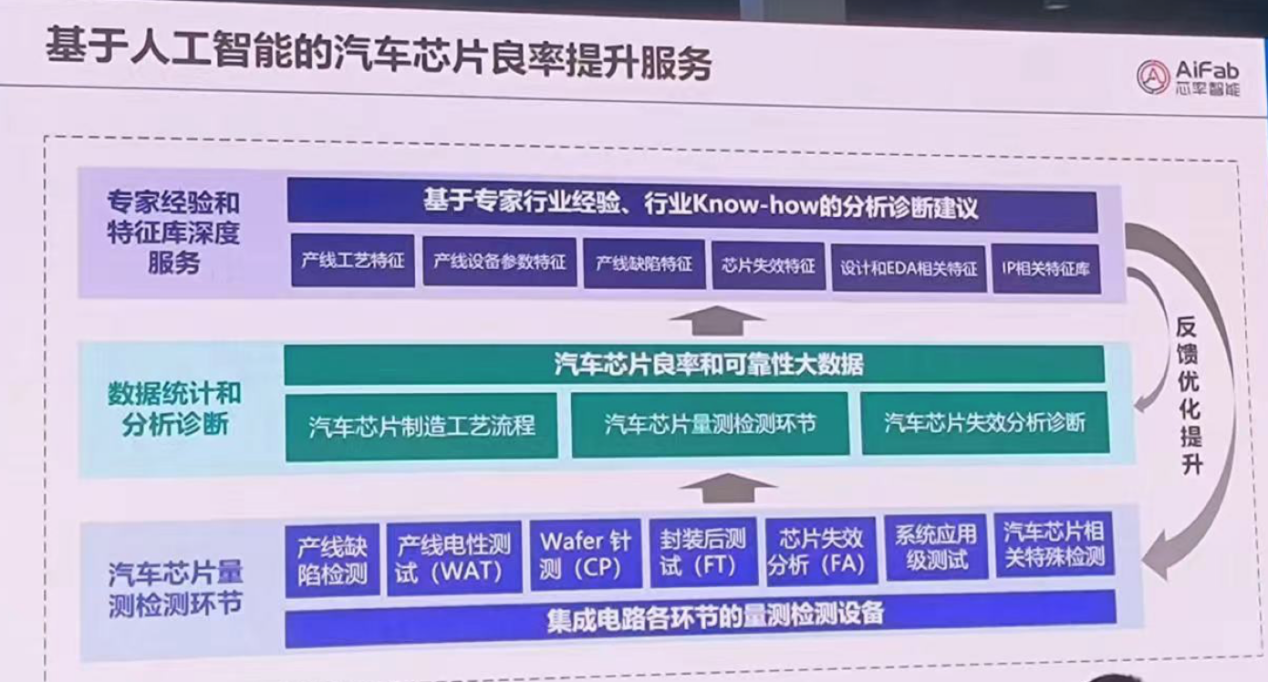
Picture: Jiang Xiaojun, co-founder of Xinli Intelligence
On July 13-14, 2023, the 3rd China Integrated Circuit Design Innovation Conference and IC Application Expo (ICDIA 2023) was held at Wuxi Taihu International Expo Center.
Mr. Jiang Xiaojun, co-founder of Xinli Intelligent Technology, said at the 10th Automotive Electronics Innovation Conference that yield rate is the lifeline of the semiconductor industry, involving company efficiency and even life and death. For foundry production lines, yield has always been a very critical indicator. Especially in the current context of substitution of domestic equipment, continuous maintenance of high yield is a long-term issue. The key to yield is to know each link how is closely related.
Currently, automotive-grade chips have become the mainstay of driving shipments in the semiconductor industry, and will undoubtedly become an important market direction in the future. The certification of car-grade chips and the improvement of yield will also become important topics discussed in the industry. Xinli Intelligent's tool-based products combined with the latest artificial intelligence technology will play an important role in the field of automotive-grade chips.
Domestic substitution of automotive grade chips is imperative
According to PwC data, most of the world's major countries/regions will achieve this goal by only selling zero-emission vehicles or banning the sale of fuel vehicles between 2030 and 2040. CO2 emission reduction. On the other hand, major European cities including Paris, Athens, Rome, Amsterdam, Oslo and other cities have also proposed plans to ban the sale of fuel/diesel vehicles, which will generally be implemented from 2024 to 2030.
Mr. Jiang Xiaojun said that traditional cars require 300-500 chips, and the demand for chips for electric smart cars has skyrocketed, reaching thousands of chips. In the future, high-level smart driving cars above L4 will require more than 3,000 chips. At present, the value of on-board chips accounts for about 35% of the total vehicle cost, and it is expected to account for about 50% of the total vehicle cost from 2030 to 2035.

Picture: The proportion of semiconductor value in the entire vehicle comes from Asia Pacific Core Valley Research Institute
Mr. Jiang Xiaojun added that my country’s annual car sales are as high as 25 million. China is not only the largest car consumer market, but will undoubtedly become the largest car producer in the future. China's automotive chip market will be approximately US$15 billion in 2021, accounting for 30% of the global market. In the future, my country's demand for automotive chips will be huge, but the proportion of domestic chips is very low. Domestic substitution is of great significance and is imperative.
Mr. Jiang Xiaojun said that the high reliability, high security and high long-term effectiveness of automotive chips have created its high threshold.
The so-called high reliability means that the operating conditions of automobile chips are very harsh, with a large temperature range and a lot of vibration and impact. Excellent automotive chips should work continuously, stably and efficiently in harsh environments. Moreover, the design life of automobiles is generally long, up to 15 years or about 200,000 kilometers. The product life cycle of automobile chips is required to be more than 15 years, and the continuous supply cycle may be more than 20 years.
Automotive chips must not go down, functional safety is extremely important, and information security factors must be taken into consideration. This is the high security emphasized by car-grade chips.
High long-term effectiveness means that because the automobile development cycle is long and it takes at least two years to develop new models, chip design must be forward-looking and able to meet forward-looking needs in the next 3-5 years. And the chip needs to support the continuous iteration requirements of future operating systems and application software
Pain points and difficulties in improving automotive chip yield
Although with the help of artificial intelligence, automotive grade chip yield testing has been more empowered. Jiang Xiaojun emphasized that there are still many pain points and difficulties in improving the yield rate of automotive chips:
First, there is an urgent need for in-depth understanding and industry consensus on the yield and reliability requirements of automotive chips, so as to form standardized testing and certification standards for automotive chips and a convenient and standardized testing process.
Second, it is necessary to gather data related to the yield industry chain of automotive chips, achieve multi-dimensional effective analysis based on big data and AI capabilities, and form effective collaboration of data from different links.
Third, it requires the continuous accumulation of expert experience knowledge base and industry Know-How related to automotive chip yield, so as to specifically solve the pain points and difficulties in the yield and reliability of automotive-grade chips.
Fourth, relying on convenient and efficient professional yield analysis tools, network-wide testing platforms and in-depth industry consulting services to support the management and optimization improvement of automotive chip yield and reliability
As we all know, the yield rate of chips is closely related to Fab, and is also affected by other manufacturing links. There are many methods that can help effectively improve the yield rate of chips around process improvement and intelligent equipment management.
Xinli Intelligence has been serving leading companies in the semiconductor industry since 2006, and has provided more than 200 software products and solutions to the semiconductor industry in the past 17 years. Mr. Jiang Xiaojun said that Xinli Intelligent has long-term cooperation with advanced process Fab factories and has accumulated a lot of know-how in particular. How and industry knowledge and understanding can provide a lot of help for the development of future automotive chips. Xinli Intelligence’s experience proves that yield management and improvement require the joint efforts of the entire industry chain, and the data in each link need to be coordinated with each other.

Mr. Jiang Xiaojun analyzed that the automotive chip yield testing process includes production line defect detection, production line electrical testing, wafer needle testing and post-packaging testing, failure analysis and system application level testing, automotive chip-related special testing, etc., which are closely related to production The data generated during the manufacturing process together form automotive chip yield and reliability big data. These big data are not just for simple analysis, the most important thing is to generate a variety of Know how and the accumulation of expert experience. Only by forming an effective closed loop as shown in the figure can we truly improve the yield rate.
The most popular artificial intelligence large model at present will play a very important role in engineering data analysis and mining-related industry know-how, as well as in improving the yield rate of automotive-grade chips.
Mr. Zeng Wentao, technical consultant of Xinli Intelligent Technology, once said that my country does not have a large number of experienced semiconductor design, process, process and other engineers, nor does it have the time and trial and error cost to train these engineers from scratch. But we have accumulated a large amount of data in the design, production, and manufacturing of semiconductors over the years. And these data, coupled with the engine of artificial intelligence, will be our huge opportunities and wealth!
Xinli Intelligent has a series of products and tools for different production and manufacturing links, which can help with the yield management and improvement of automotive chips.
AI ADC defect automatic classification
AI ADC defect automatic classification adopts a dynamic defect classification method based on machine vision, classifying based on actual defect examples on the production line rather than referring to "best-fit" approximations or "fuzzy logic" description characteristics; the solution is combined with wafer manufacturing Business requirements: use non-reference classification methods including deep learning algorithms for wafer defect feature types.
The number and types of defects on each wafer will be very large. Different defects may come from different mechanisms. Which ones will affect the yield of automotive chips need to be distinguished, so it needs to be based on spatial characteristics. Effective identification and classification.
AI ADC automatic defect classification is beneficial to product refinement and simplified on-site configuration, easy to integrate into the production environment, and supports scalable high-speed classification value-added services.
After three years of research and development, the product has been put into practical use in many local leading wafer mass production lines and has achieved excellent results measured based on KPIs.
Virtual Measurement
Mr. Jiang Xiaojun said that measurement and testing run through the entire process of chip production and manufacturing. However, measuring all wafers one by one is not only expensive but also very time-consuming. Virtual measurement Metrology) is based on the analysis and modeling of equipment and process data to achieve prediction of process and product characteristics of important manufacturing links without the need to conduct complete measurements on all modules/wafers.
For some processes, destructive measurement of sampling wafers is required every time after maintenance and adjustment of equipment and processes, which is relatively difficult and requires a lot of time and cost. Virtual measurement based on analysis and modeling of equipment and process data can quickly track process and equipment adjustments and achieve effective control of production line processes and equipment.
Evaluation, management and prediction of equipment production status
Due to the particularity of the chip industry, the production line equipment of semiconductor manufacturing companies need to dynamically monitor and evaluate the working status.
Normally, abnormalities in front-end and back-end equipment are often discovered after the fact. It is possible that the raw materials produced have been scrapped, wasting production capacity, and engineering resources need to be invested in the post-processing process. Can we turn post-event management into during-event and before-event management? By modeling processes and equipment and providing real-time warnings for the entire production process, abnormal situations in the production line can be effectively reduced and the efficiency of the production line can be improved. You can also do some predictive equipment maintenance in advance.
Mr. Jiang Xiaojun said that consistent matching of multiple devices is very critical for automotive chip production. Automotive chip foundries usually achieve equipment consistency through manual adjustment. On the one hand, it requires operators to have a lot of practical experience and relies heavily on subjective judgment, which involves various risks. On the other hand, it requires manual online work from time to time. Processing efficiency is very low. Such problems can be better solved through an intelligent management system based on artificial intelligence in the manufacturing process.
Mr. Jiang Xiaojun added that based on data such as chip manufacturing companies’ production processes, equipment information, recipes, equipment logs and real-time working conditions, Core Intelligence can help semiconductor manufacturing companies monitor production through deep learning and multi-dimensional correlation analysis. Equipment, real-time abnormality warning, realizing forward-looking equipment status management and predictive equipment maintenance.
Under the premise that there is a huge gap between domestic semiconductor equipment and materials and foreign countries, Xinli Intelligent is developing industrial software in key areas of integrated circuit manufacturing, using data intelligence to drive semiconductor process improvement, equipment enhancement and optimization, and providing semiconductor Industrial software is autonomous and controllable, contributing to local strength.
At the same time, because Xinli Intelligent has many years of business cooperation with companies in the semiconductor manufacturing and measurement and testing sectors, it has accumulated a large amount of industry know-how. how. As external technology blockades become increasingly severe, giving full play to the power of data models and promoting the optimization and improvement of semiconductor manufacturing and related industrial mechanisms can provide new opportunities for accelerating domestic substitution of automotive chips.













